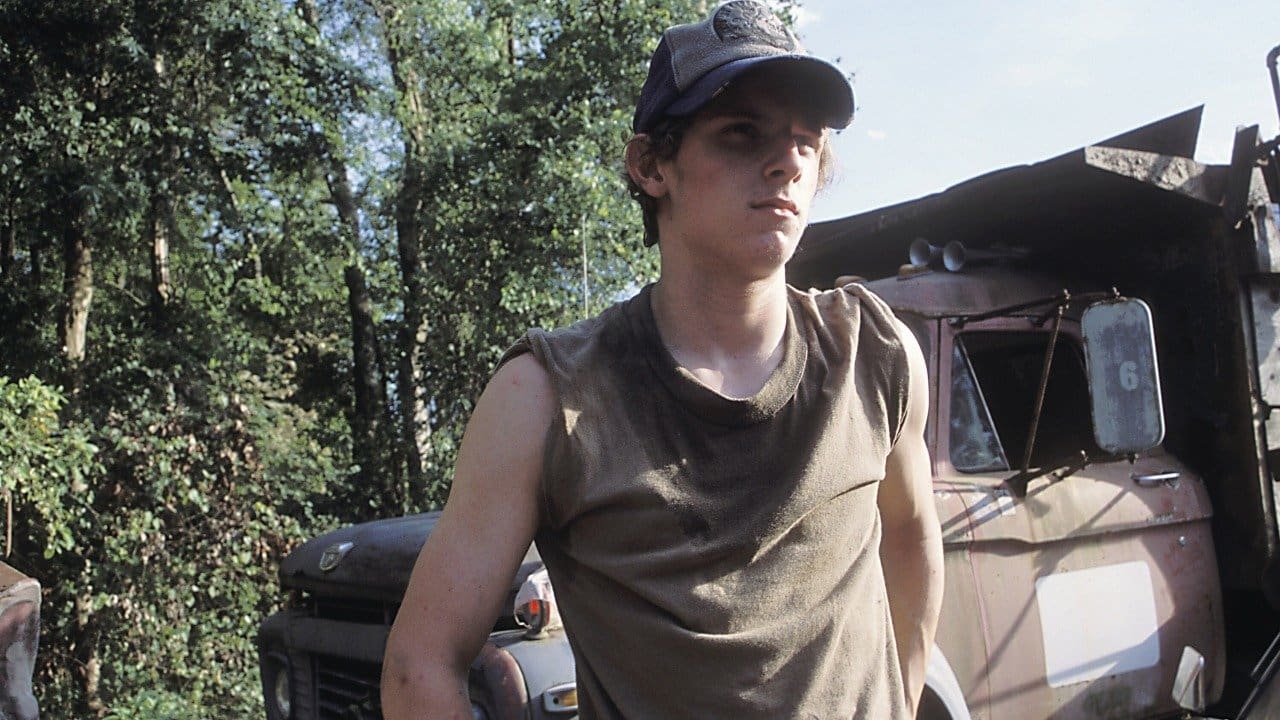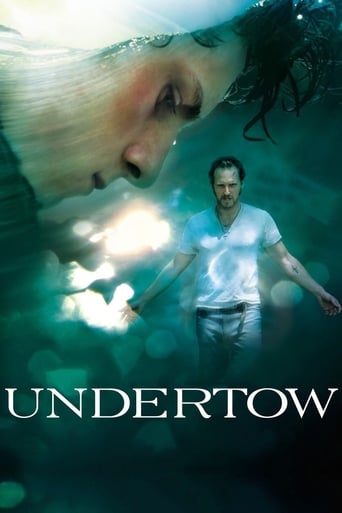TrueJoshNight
Truly Dreadful Film
ThiefHott
Too much of everything
Sienna-Rose Mclaughlin
The movie really just wants to entertain people.
The_late_Buddy_Ryan
According to IMDb, it was Terence Malick who brought this script to the attention of his chief disciple, David Gordon Green. It seems like what DGG originally had in mind was a lyrical, "Tree of Life"–type story focusing on Tim, the younger of two brothers who live with their widowed father in a farmhouse in rural Georgia. At some point he decided to switch over to a more bankable plot line, reminiscent of "Night of the Hunter," involving a hoard of gold coins that's hidden in the house and a covetous ex-con uncle. Thus, we get a few slices of Tim's story—he's a dreamy ten-year-old who suffers from pica (an eating disorder that makes him crave paint and dirt and such) and arranges his old paperbacks "by the way they smell"—intercut with faster-moving scenes of conflict and pursuit. Perversely, after all hell breaks loose (no spoilers here!) and the brothers run off with the gold, Green starts channeling in Malick at his most leisurely and reflective, and we get a lingering shot of a slow-moving woodland stream under Tim's improv'd monologue about chiggers and their habits… The "Night of the Hunter" storyline stalls repeatedly so Green can splice in little comic vignettes of rural life—the uncle's encounters with a talky towtruck driver and a goofy cashier who swallows her gum, the wedding of a local boy and an Asian picture bride—that he'd clearly have loved to expand on. The final scenes play out in familiar DGG locales—a giant auto graveyard and a homeless encampment—but the film had totally lost momentum by then, and I couldn't get too interested in decoding their occult significance. (Earlier references to Charon and Christ's stigmata remind us that the original treatment was written by a prep-school English teacher.) No doubt that DGG's a brilliant filmmaker, but this seems to be one of those overstuffed auteurist efforts like "The Master" that have to be watched repeatedly on disk (including deleted scenes) before you can get much out of them. (Too bad that he didn't get a shot at "A Confederacy of Dunces," btw.)
MrGKB
...that, if nothing else, confirms that auteur David Gordon Green is a director to watch. "Undertow" is a somewhat picaresque tale, of a stripe labeled Southern Gothic these days, that concerns itself with the lives of two generations of brothers, one the parent to the other. The Terrence Malick (one of the film's producers) influence is apparent, along with that of Mark Twain, Miguel de Cervantes and the like. The story is a simple one of Good betrayed and pursued by Evil, with a resolution that may leave some viewers cold, if not befuddled, but as is the case in so many similar tales, it's the journey itself and the lessons learned (or not) along the way that is the meat of things, and Green serves up a mostly satisfying meal. The acting is quite good, especially from the young leads. Jamie "Jumper" Bell is superb, proving himself once again as an immensely talented young actor with a long and successful career ahead of him, while relative newcomer Devon Alan shows good chops as Bell's younger brother. Dermot "Living in Oblivion" Mulroney and Josh "Poseidon" Lucas, as the boys' fathers, ably demonstrate their abilities with excellent performances of characters notably against type. The supporting ensemble features a number of recognizable faces, including a very brief appearance by Bill "Deliverance" McKinney ("Squeal like a pig!"), although unfortunately Kristen "Panic Room" Stewart and Shiri "Swimfan" Appleby don't get near enough screen time. Longtime Green collaborator Tim "Sex Drive" Orr handles the camera chores with great finesse and an eye for the corroded beauty of downhome Alabama. The score by Philip "Koyaanisqatsi" Glass is appropriately pastoral and foreboding as required, not his strongest work but quite serviceable. Likewise, the editing by Green collaborators Steven Gonzales and Zene Baker is good, though in my estimation marred by seemingly random freezes and fades that practically scream, "Cut to commercial!" Still, whatever minor quibbles I have, "Undertow" is a worthy rental, if not purchase, and a commendable alternative to typical Hollywood fare.
Joseph Sylvers
Not quite the southern Gothic revival I was expecting from David Gordan Green after watching "George Washington" but not too bad anyway.Two brothers witness their Uncle kill their father, for a set of lost gold coins, and unable to turn to the police, are forced to escape cross country, and encounter many strange and symbolic characters along the way.All and all I wasn't as impressed with Green's stunner of a debut, his trademark writing style is still present "can I carve my smile in your face?", but it's used less here, to the movies detriment. There's some great cinematography as well, the same sense of the beautiful junkyards and backwoods, but the overall story feels kinda contrived. There are some fairy tale-esquire moments, which elevate this above a normal thriller, but a masterpiece this is not.I got the sense when watching this it might be better the next time, or it might be worse. Worth watching for Dave Gordon Green fans, and those interested in beautiful photography of the south, or thrillers in general, but overall it just didn't seem to connect all it threads.
MisterWhiplash
David Gordon Green explores the story in Undertow with an intention to tell the story, but there's also an intention to explore the spaces his actors inhabit, or run to, or from, and occasionally with the lyricism of a grungy street poet. This isn't to say the film is pretentious; it can be enjoyed by those who just want a good, harrowing chase movie. Yet it asks a little more for an audience complacent with the norm in Hollywood, used to the conflict being simplistic with respect to the characterizations. Its presentation calls attention to a director attempting to find the thematic beats through what could otherwise be a conventional ride. It's also no mistake to make the connection to films of the 70s, or specifically Terence Malick's austere visual approach; Malick is credited as producer, so it's bound to have some informal mark of his own somewhere.It's really a tragedy of the rural family, where a single father (Mulroney) raising two kids (Bell and Alan), the older one something of a troublemaker, constantly brought in to the cops. When the father's brother (a perfect antagonist in Lucas) gets out of prison and comes to visit, it's more than a friendly family call; greed and vengeance bring him there, and a horrible incident occurs that sends the two children running away, now with their uncle in tow. He's after some valuable old gold coins- family heirlooms or sacred Mexican lot, depending on what story is to be believed- and nothing will stop him. Meanwhile, the two kids (the younger of the two pretty sick most often) are left to their own devices, looking for work, hiding in junkyards, or with the help of fellow underworld travelers.Aside from that, which is the basic plot, a lot of Undertow sways between tense and taut drama and action, with a couple of really visceral fights and bits of violence, and an understated character study. There's the performances that feel right in the thick of it, with Bell giving it all in a breakout role. But it's just... hard to explain the sensibility that gives this an edge over other dramas out there. The setting is one thing, where for the most part (with a few exceptions) Green doesn't succumb to total clichés with these southern hobos and backwoods folk (or, at the least, there's a humanism caught by having what would appear to be non-actors in roles like convenience store clerks and tow-truck drivers). And also it's the cinematography, which is clear and cool and hand-held for some subjective impact, plus the eerie, unusual score by Philip Glass.All of these punctuations on a story that is dark and compelling are abound, but it's also this bond between the two brothers, and the memories that they share and how memories in general work into the narrative, that score Green success. It's about mood as much as plot, about sorrow and anger and fear and all these things, and it's never something to scoff as too artsy-fartsy. It's just about right.

